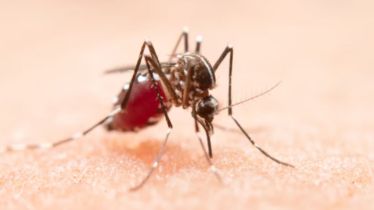Monsoon has reached most parts of India, giving people a break from the extreme summer heat. But with the nonstop rain, hospitals are seeing more and more patients coming in with either dengue or chikungunya. Mumbai, which is now on yellow alert, has seen heavy rains, overflowing drains, and stagnant water on roads, all of which create the perfect breeding ground for mosquitoes. As humidity levels rise, so does the risk of mosquito-borne illnesses like dengue, chikungunya, and malaria, just like every year.
The early 2025 monsoon triggered a sharp spike: chikungunya went from 21 cases in the same period of 2024 to 136 cases by mid‑2025; dengue also rose, with malaria up 39 per cent in Mumbai.
Brihanmumbai Municipal Corporation (BMC) reported 2,857 malaria, 136 chikungunya, and 452 dengue cases in Mumbai for Jan–Jun 2025, compared to 2,055 malaria, 21 chikungunya, and 431 dengue in the same period of 2024.
Doctors across the city are seeing a surge in these infections, especially among children and pregnant women, who are more vulnerable to complications.
“With the onset of monsoon, the change in weather and waterlogged areas provide an ideal atmosphere for mosquitoes to breed. We are currently witnessing a significant rise in dengue and chikungunya cases across OPDs,” says Dr. Shalmali Inamdar, Consultant, Physician and Adult Infectious Diseases, Kokilaben Dhirubhai Ambani Hospital, Mumbai.
Who is most at risk?
Young children are particularly at risk because their immune systems are still developing. What’s more worrying, according to experts, is that symptoms in children may not always show the usual signs, which makes early diagnosis tricky.
“Children are particularly susceptible, and their symptoms can present atypically. Parents need to be extra careful and not delay seeking medical help,” adds Dr. Inamdar.
Pregnant women are another high-risk group. Infections like dengue can cause a sudden drop in platelet count, which can lead to complications such as preterm labor or fetal distress.
“Pregnant women require close monitoring, as vector-borne infections can progress quickly. Chikungunya, for example, can lead to intense joint pain that may last for weeks or even months,” says Dr. Inamdar.
Warning signs to watch out for
If you or a family member shows signs of fever that lasts more than 2–3 days, along with rashes, joint pain, or severe fatigue, then you must consult a doctor immediately. Delaying treatment can lead to serious complications like internal bleeding, organ damage, or, in rare cases, long-term disability.
Precautionary measures to keep yourself safe
Doctors are urging families to take basic precautions seriously, which includes:
– Getting rid of stagnant water around your home
– Using mosquito repellents
– Wearing full-sleeved clothes
– Avoiding mosquito exposure during early mornings and evenings
“We urge the public not to ignore fevers during the monsoon. Early diagnosis and timely treatment can make all the difference,” says Dr. Inamdar. “Prevention remains our best defence.”
With the monsoon still going strong, it’s time to stay alert, not just for potholes and puddles, but for the tiny mosquitoes that can cause big trouble.
